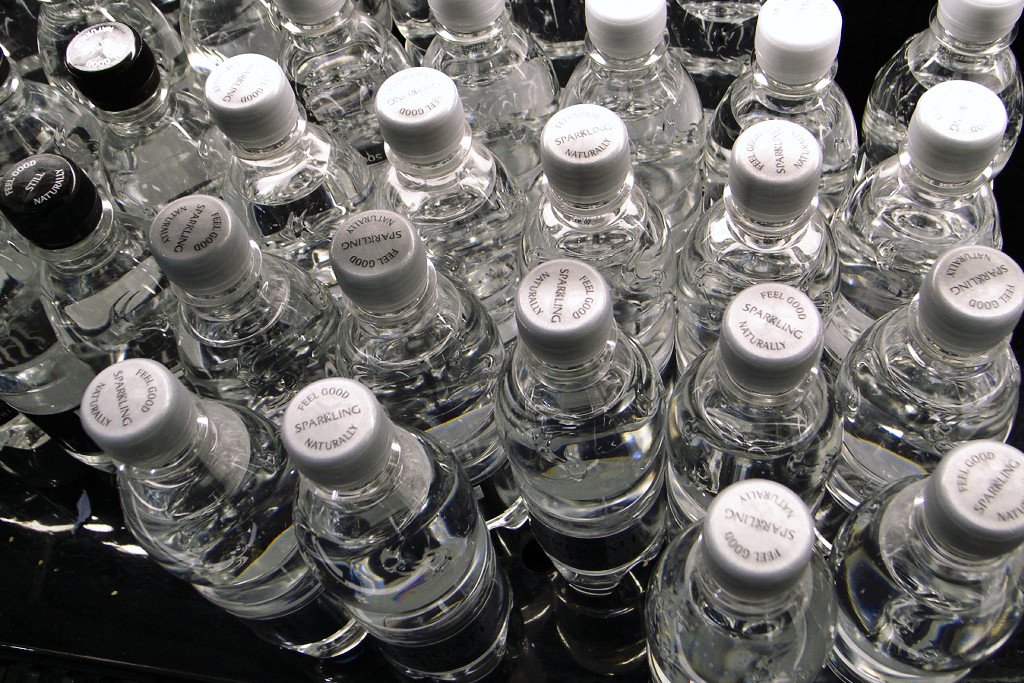On Bottled Water Free Day, communities are promoting public water services and calling for governments to implement the human right to water. Since 2010, the Coalition for Bottled Water-Free Communities has spearheaded Bottled Water Free Day, a Canada-wide and international day of action to challenge the bottled water industry and encourage clean and strong public water systems.
In Canada, there are over 90 municipalities, nearly a dozen school boards and almost 30 campuses that have committed to taking action on bottled water in their sectors.
There are 16 Blue Communities in Canada, two in Switzerland and one in Brazil. A “blue community” is one that adopts a water commons framework by taking three actions:
- Recognizing water as a human right.
- Promoting publicly financed, owned and operated water and waste water services.
- Banning the sale of bottled water in public facilities and at municipal events.
A water commons framework treats water as belonging to no one, and the responsibility of all. Because water is central to human activity, it must be governed by principles that allow for reasonable use, equal distribution and responsible treatment in order to preserve water for nature and future generations.
Bottled Water Free Day is an important day to draw attention to the importance of public water, the dangers of the privatization of water and the need to implement the human right to water and sanitation.
While many public water systems have safe, clean drinking water, there are communities across Canada that are not able to go bottled water free because of the lack of clean drinking water. The Council of Canadians report On Notice for a Drinking Water Crisis released last week gives an overview of the 1,838 drinking water advisories in Canadian and Indigenous communities — some under drinking water advisory for years at a time. The report gives an overview of the threats to drinking water in each of the provinces, territories and in First Nations. The report calls for a National Water Policy that establishes national enforceable drinking water standard, recognizes water as a human right, respects Indigenous water rights, creates a national public water infrastructure fund and provides a strategy to address water pollution.

With the Harper government’s 2012 omnibudget bills that gutted much needed freshwater protections, communities are seeing their drinking water put at increasing risk. For example, in 2012, 99 per cent of lakes and rivers were delisted from protections under the Navigable Waters Protection Act. The Council of Canadians is encouraging communities to take part in the #Pledge2Protect Our Lakes and Rivers on World Water Day (Sunday, March 22).
This World Water Day, tell Members of Parliament and federal election candidates to put the protections back on our waterways! You can take action by adding a photo to the Council of Canadians gallery of waterways. Gather a group of people and take a photo at a lake or river in your community that is no longer protected. Be sure to download a sign — or make one of your own — calling on your member of Parliament (MP) to reinstate protection for that lake or river. To access sample signs, tweets and a list of unprotected lakes and rivers, click here.
With Bottled Water Free Day March 16 and World Water Day on Sunday, celebrate and help protect drinking water by:
- Taking part in the #Pledge2Protect our Lakes and Rivers campaign.
- Helping your community become a Blue Community.
- Signing this petition to tell federal party leaders you want an updated National Water Policy that recognizes the human right to water.




